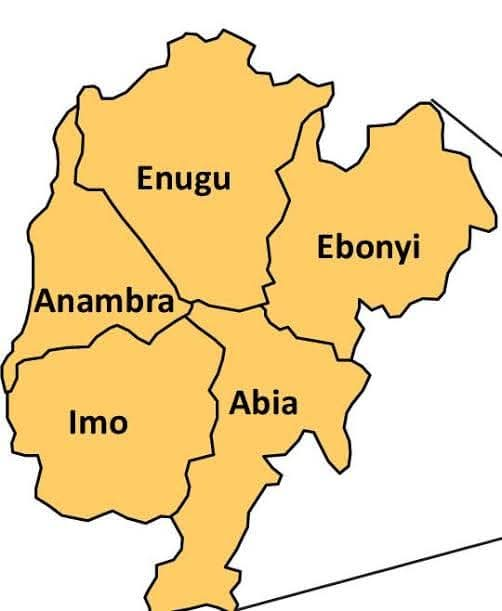The recent Value Added Tax (VAT) contributions and allocations for South-East states from January to October 2024 have exposed a deeply troubling reality. While other states in the region, such as Anambra, Ebonyi, and Enugu, are making significant strides in generating revenue, Imo and Abia—both oil-producing states—are failing to live up to their potential.
Here’s a quick look at the VAT numbers:
Anambra: Contributed ₦40.13 billion, received ₦63.35 billion (157.9%).
Ebonyi: Contributed ₦21.98 billion, received ₦49.97 billion (227.3%).
Enugu: Contributed ₦12.99 billion, received ₦54.76 billion (421.4%).
Abia: Contributed just ₦6.50 billion, received ₦51.59 billion (793.1%).
Imo: Contributed a paltry ₦3.33 billion, yet received ₦57.22 billion (1,715.9%).
Imo and Abia, both blessed with abundant natural resources, are lagging embarrassingly behind in revenue generation. Despite their oil-producing status, these states seem to be content with their reliance on federal allocations while failing to harness the economic potential within their borders.
Imo State: A Wasted Opportunity in Tourism and Hospitality
Imo State is sitting on a goldmine of untapped tourism and hospitality potential. From Oguta Lake to the cultural attractions in the state, there is no shortage of opportunities to create wealth. The hospitality sector in particular is thriving, yet the state has failed to implement a comprehensive taxation system to generate revenue from this lucrative industry.
Consider this: if each hotel in Imo were taxed $1,000 annually (a modest amount for businesses in the hospitality sector), and smaller establishments like lounges and bars were charged a minimum operational tax of $300 per year, the revenue generated could be massive. Yet, these opportunities remain ignored.
In addition, Imo should ensure that oil-producing companies operating within the state have their offices in the state. Currently, many of these companies are headquartered in Lagos or Rivers State, depriving Imo of critical taxes and the economic benefits of hosting corporate offices.
Abia State: A Wealthy State Failing to Tax Its Wealth
Abia’s situation is equally frustrating. This is a state with a booming industrial hub in Aba, as well as significant oil resources. Yet, its VAT contributions are among the lowest in the region. Why? The state lacks a structured fiscal policy that enforces tax compliance among its industries.
Factories and industries in Aba should be contributing significantly to the state’s revenue, but many of them are either under-taxed or not taxed at all. Similarly, oil firms operating in Abia continue to maintain offices in other states, effectively transferring the revenue that should belong to Abia to Lagos or Rivers. This is both an economic and administrative failure.
Lessons from Neighboring States
Ebonyi, a state with far fewer resources than Imo and Abia, contributed ₦21.98 billion—almost seven times what Imo contributed. Enugu, which has no oil, contributed ₦12.99 billion. Anambra, with its trade and manufacturing sectors, remains the leader in the South-East, proving that strategic leadership and proper fiscal policies can make all the difference.
If Ebonyi and Enugu can outperform oil-producing states like Imo and Abia, then it’s clear that the problem is not a lack of resources but a failure of governance.
The Consequences of Inaction
If Imo and Abia fail to act, they risk remaining perpetually dependent on federal allocations, a precarious and unsustainable position. Worse still, their failure to capitalize on their resources could see their oil revenues effectively claimed by states like Lagos and Rivers, which host the offices of many oil companies.
This reliance on allocations instead of innovation and internal revenue generation is not just an economic issue; it’s a moral failing. Imo and Abia must stop being tax havens for businesses unwilling to contribute their fair share to development.
The Way Forward
1. Tourism and Hospitality Taxes: Imo must implement a fair and enforceable taxation policy for the hospitality industry, with hotels and entertainment centers contributing their share to state coffers.
2. Industrial and Oil Revenues: Abia must ensure that its factories are adequately taxed and that oil firms operating in the state establish offices within its borders.
3. Fiscal Accountability: Both states need transparent policies to ensure that every naira collected is channeled into infrastructure, healthcare, education, and other development initiatives.
4. Political Will: Leadership in both states must rise to the challenge and embrace innovation in revenue generation.
A Call for Leadership
The resources and opportunities are there. What’s missing is the vision and political will to harness them. Imo and Abia cannot afford to continue on their current path of underperformance. They must take bold steps to shore up their Internally Generated Revenue (IGR) and secure their futures.
The time to act is now. Anything less is a betrayal of their people and their potential.
Anthony Emeka Nwosu




